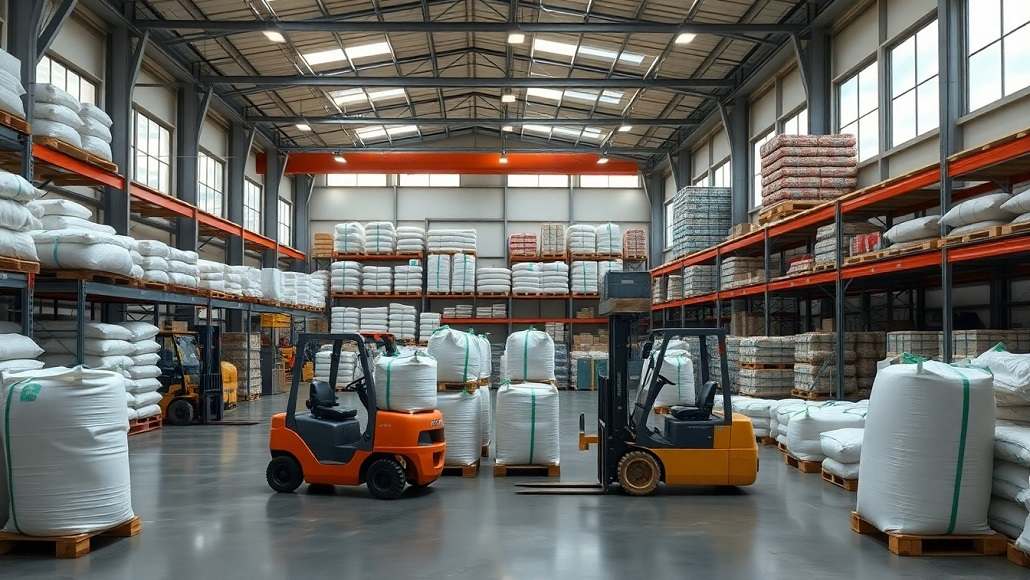When you’re managing a warehouse, manufacturing line, or distribution center, containers aren’t just storage—they’re part of your workflow, your budget, and your strategy. FIBC bulk bags are known for their strength and flexibility, but too often, they’re tossed aside after a single use.
The truth? These bags are built to handle more than one job. In fact, when reused creatively, they can save businesses time, money, and valuable floor space. If you’re looking to cut costs and improve operations, repurposing your bulk bags might be the easiest win you haven’t taken advantage of yet.
Below are five clever ways businesses are giving FIBC bags a second life without cutting corners.
1. Repurposing FIBC Bags for In-House Material Sorting
Every warehouse has materials that need to be separated by type, batch, quality level, or next destination. Reusing FIBC bags as mobile sorting stations makes this process easier and far more affordable.
Instead of investing in expensive bins or building out sorting lines, teams can use previously used bulk bags to sort and store scrap, defective parts, or incoming material. The bags are easy to move with forklifts or pallet jacks, and they can be collapsed and stored when not in use.
2. Using FIBC Bags for Overflow and Seasonal Storage
Peak season doesn’t just bring more orders—it brings more product, more packaging, and more stress on your storage system. If rigid containers or bins are maxed out, reused FIBC bags step in as a cost-effective, temporary solution.
They can hold bulk packaging, extra materials, or seasonal products until demand slows down again. Because they collapse flat when empty, they’re easy to store in the off-season. And unlike renting extra containers or building new shelving, they don’t require any permanent changes to your layout.
One of the best parts? When you need to move that overflow to another facility or a different section of your warehouse, the bags are already designed to travel well.
3. Reusing FIBC Bags for Recycling and Waste Collection
It’s no secret that large operations generate a lot of recyclable material. From cardboard and plastic to metal scraps and stretch wrap, most businesses spend good money on waste containers or additional pickups.
Older FIBC bags—especially those not quite sturdy enough for full product loads—are a perfect fit for collecting and transporting recyclables within a warehouse. Designate bags by material type, fill as you go, and then transport them to your main disposal or recycling center with a forklift or pallet jack.
This setup cuts down on container costs and keeps work areas cleaner and more organized, especially in high-production environments.
4. Converting Older FIBC Bags into Equipment or Tool Carriers
When FIBC bags are no longer suitable for heavy-duty product loads, they can still play a role in day-to-day operations. Many businesses reuse them to carry tools, spare parts, cables, and other items across large facilities or job sites.
They’re portable, flexible, and tough enough to handle equipment that doesn’t need a pristine storage space. This reuse strategy for warehouses with multiple zones or teams working on different shifts helps minimize the time spent retrieving tools or making supply runs.
You’ll often see these bags stationed at key areas on the floor or riding along on forklifts from one end of the building to the other.
5. Using FIBC Bags for Donations and Internal Transfers
Sometimes, excess materials don’t go to waste—they just need a new home. More businesses are using cleaned FIBC bags to donate extra products to community organizations, vendors, or smaller operations that can still make good use of them.
They’re also an innovative tool for redistributing inventory between warehouses or departments. Instead of packing items into boxes or ordering temporary containers, these bags offer a ready-to-go transfer solution that saves time and reduces material costs.
It’s common to see listings of used FIBC bags for sale that are still in excellent shape and perfect for this kind of internal movement or redistribution.
A Smarter Way to Extend Your Supply Chain
FIBC bulk bags are more than just one-time containers—they’re an ongoing resource hiding in plain sight. Reusing them doesn’t just help your bottom line, it gives your operation more flexibility, more control, and less waste.
If you’re looking to stretch your container budget without compromising on quality, Container Exchanger offers a wide selection of used FIBC bags for sale that are ready for their next job—no guesswork required.
































